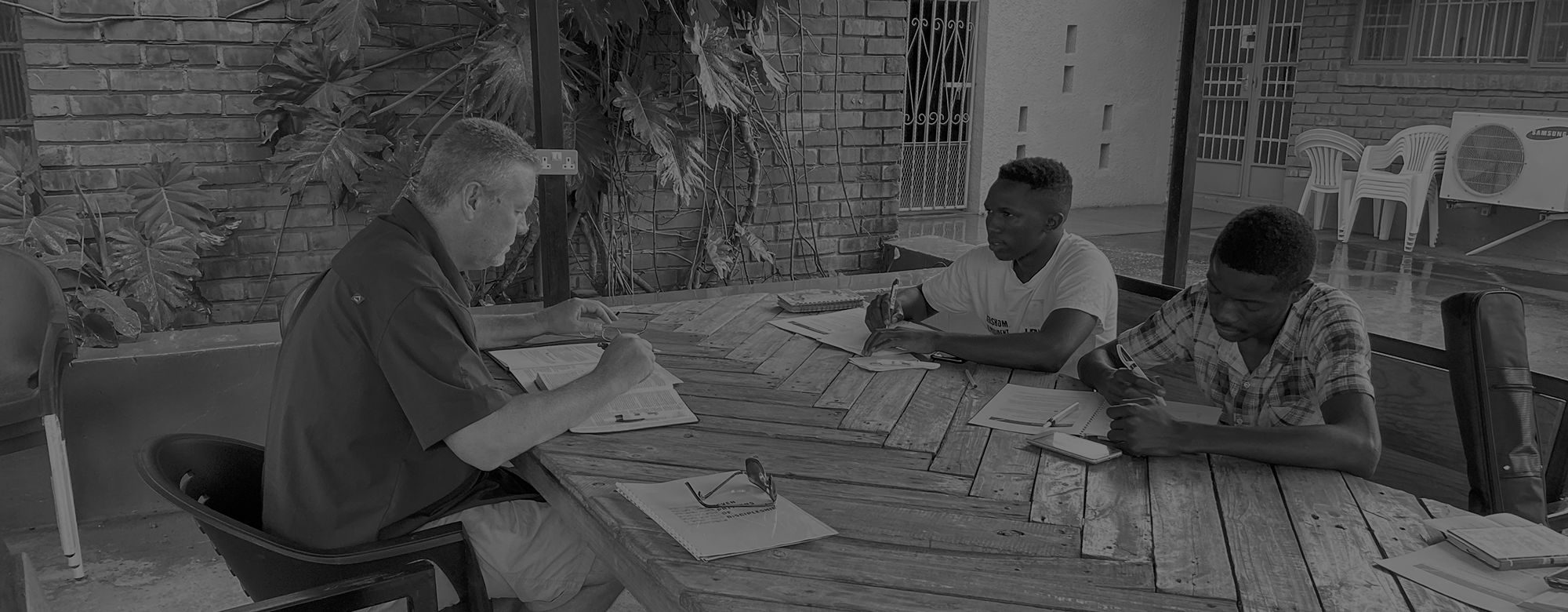
07 Jun Outside the Camp
Like many of you, I began the year with a plan to read through the bible in a year. As usual I find it is easy to get bogged down in Leviticus and Numbers with all the laws about skin diseases, fungus, scaly outbreaks, scabs, discharges, touching dead people or animals, and all kinds of issues pertaining to being unclean. However, this time I became fascinated with all of this uncleanness (perhaps because I live in Africa and every week I seem to have something strange happening on my skin), because of a phrase that is used around 20 times in these two books, OUTSIDE THE CAMP.
The Israelites left Egypt and became nomadic people on their way to the Promised Land. During this time God instructed Moses to build a Tabernacle and surround it with a Tent. The Tabernacle would be where the Ark of the covenant was, and the Mercy Seat would sit on top of the Ark. The 10 Commandments were placed in the Ark. The Tabernacle symbolized the place where God’s presence dwelled and at times His presence actually appeared before the people. The Tabernacle and the Tent of Meeting was placed in the middle of the camp signifying God’s presence in the middle, or in the midst of the people. Then the 12 tribes of Israel would take their designated places camping around the Tabernacle.
Now if there is an area inside the camp, then there must be a place outside the camp. If inside the camp is where the presence of God dwells, then outside the camp must signify a place where the presence of God does not dwell. They would be cut off from the presence of God. It would certainly be a place that people did not want to be, outside the camp. So, we see people with diseases, fevers, oozing skin rashes, scabs, and many other issues that would be placed outside the camp. In essence these people were being quarantined until they got better. If they got better, they performed some cleansing rituals and then they were welcomed back inside the camp and ultimately back into God’s presence. A lot like we are seeing with Covid 19. Obviously, this has a very practical function. If you have over 2 million people in tight living conditions and traveling together, a virus or disease could wipe out thousands if not millions of people.
However, from a relational and spiritual standpoint those outside the camp were separated from their family and ultimately God. These people became outcasts, marginalized, and disenfranchised. Perhaps even considered cursed by God and assumed they had committed some horrible sin. Life was not pleasant for those outside the camp. They might have to yell “unclean” if someone from inside the camp accidentally passed by them. Fear would grip those inside the camp to make sure they never got near or touched someone outside the camp.
As Israel settled in the Promised Land the literal camps no longer existed. However, the idea of what these two camps represented are still alive today and was certainly present in Jesus’ day. The Pharisees and their crowd thought they were “inside the camp” and Gentiles, Samaritans, tax collectors, sinners, demon-possessed, lepers, crippled, blind, deaf, and those with skin diseases were considered “outside the camp.” Those inside the camp don’t want to know or be near those outside the camp.
But God, reveals Himself in His Son Jesus, the Christ. Jesus leaves heaven and comes to earth. The Message says it like this in John 1:14, “The Word became flesh and blood, and moved into the neighborhood.” Jesus was inside the camp, but God sent Him outside the camp, to earth, to embrace the Lost, Least, Last, and Lonely. And Jesus showed us amazing things as it relates to those outside the camp.
In the book of Numbers 5:1-4, God tells Moses that anyone afflicted with a skin disease, anyone who has a discharge, or anyone who has touched a dead body must be sent outside the camp. Dr. Luke writes in chapters 5 and 8, almost as if he is thinking of or reading Numbers 5. In Luke 5:12 a man, “covered with leprosy” comes to Jesus and says, “if you want to, you can make me clean.” Immediately you can hear every Hebrew scream, “don’t touch him Jesus or you will become unclean.” But something amazing happens, Jesus puts out his hand, touches the man, and says in v.13, “I want to. Be clean. Then and there his skin was smooth, the leprosy gone.” WOW! Jesus touched a man with a skin disease and Jesus did not become unclean the man became clean.
In Luke 8:40-42 a man named Jairus fell down at Jesus’ feet and begged him to come to his house and heal his 12-year old daughter who was dying. She was his only child. As Jesus was going to Jairus’ house a woman, who had a discharge of blood for 12 years, was desperately seeking after Jesus. As she got close to Jesus and reaching out her hand you can imagine every Hebrew yelling at Jesus, “don’t let her touch you Jesus or you will become unclean.” But again, something amazing happens. The woman with the discharge of blood touched Jesus and Jesus did not become unclean, the woman became clean.
As Jesus continues his journey to Jairus’ house, some servants met them on the road and told Jairus his daughter was dead, and they no longer needed Jesus. But Jesus continued on to the house. He walked into the house and tells everyone to “stop crying, because she is not dead but asleep.” They all laughed at Jesus. And like a gentle father kneeling down to wake his young daughter in the morning, Jesus took her by the hand v.54. Again, you can hear every Hebrew scream don’t touch her Jesus she is dead. You will become unclean. Miraculously Jesus does not become unclean, but the little girl becomes clean, she’s alive.
In Lev. 13-15, Moses tells you what to do if you become clean, but it doesn’t tell anyone how to become unclean. Neither Moses, the priest, nor the Law could make anyone clean. The only one who can make us clean is Jesus Christ, the Son of God. Jesus basically said he came for the unclean outside the camp. In Matthew 9:12 when those who thought they were inside the camp asked, why does Jesus hang out with people “outside the camp” He said, “Those who are well have no need of a Physician, but those who are sick.”
The writer of Hebrews references the day the Tabernacle was in play. Remembering how the Israelites would bring an animal sacrifice to the Tabernacle, place their hand on its head, and then kill it. The priest would take some blood and sprinkle it on the mercy seat. The dead animal body would be taken outside the camp and burned. In Hebrews 13:10-13 he writes, “We have an altar from which those who serve the tent have no right to eat. For the bodies of those animals whose blood is brought into the holy places by the high priest as a sacrifice for sin are burned outside the camp. So Jesus also suffered outside the gate in order to sanctify the people through his own blood. Therefore, let us go to him outside the camp and bear the reproach he endured.”
Jesus does not sit inside the camp hoping if we get better and cleaned up, we will come into the camp. He knows it is impossible for us to become clean on our own. Jesus went outside the gate of the city on Golgotha hill to bear the reproach of those outside the camp so that we might become clean. He came to us. He wasn’t afraid of our diseases, discharges, scabs, sins, deadness, or uncleanness. He bore our reproach that kept us cut off from the presence of God and provided THE way for us to be clean, thereby welcoming us inside the camp. Hallelujah!! What a SAVIOR!!!
Jesus did what Moses, the Priest, and the Law could not do. He made us CLEAN, and modeled for us inside the camp folks what we are to do. Hebrews 13:13, “Therefore, let us go to him outside the camp…” Those followers of Jesus who are truly “inside the camp” must embrace the command to go outside the camp to the Lost, Least, Last, and Lonely. Never to judge, but always to love those who are disenfranchised, marginalized, feel forgotten, and feel outside God’s presence.
I pray that those who have the Spirit of Christ in them will not be satisfied with personally being inside the camp. I pray we will be so burdened by those who are outside the camp, that we cannot be satisfied until all have heard about the Savior who moved into the neighborhood, to make a way for us to be clean, forgiven, and made alive so we can know the presence of God.




No Comments